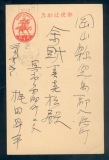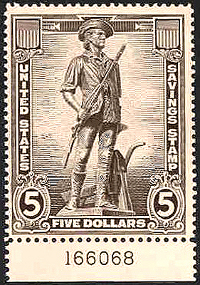
Discussion - Member to Member Sales - Research Center

Discussion - Member to Member Sales - Research Center

This is an attempt to show what these shades actually look like, as this can be critical when the prices in catalogues vary wildly on mint copies and to a lesser degree (but still substantially) on used copies.
To start with, there are two shades issued according to Scott in 1880, #9 dull rose and #9a rose.
SG states the issue date to be 1882 and are numbered SG28 Dull Rose and SG28a Rose. For once, Scott and SG are in accordance with the colour description but not the issue date.
Here are examples of used and mint copies:






When trying to distinguish between mint copies in particular, it is important to take into consideration the colour of the gum. Dark or toned gum gives the appearance of a darker shade.

1 Member
likes this post.
Login to Like.
Now moving on to the Scott Wmk. 2 / SG Wmk Crown CA (w6) Queen Victorian 2 cent values: Scott #36 - rose-lake and #36a rose pink; SG32 and SG32a.
Once again Scott & SG agree on colour descriptions.







1 Member
likes this post.
Login to Like.
Now we come to the carmine and aniline carmine values from 1884: Scott #36b and #36c ; SG33 and SG33a.
Each of these are found in varying intensity of colour, due to the numerous printings produced. Consequently, there is difficulty finding exact shade matches from the examples I have. Added to that, the scanner is distorting the brighter carmines.
Nonetheless, the difference between carmine and aniline carmine should be apparent. The used copy of the aniline carmine that I've chosen, shows the watermark through the paper. This is quite often an attribute of the that shade.







1 Member
likes this post.
Login to Like.
Here is a direct comparison between the two values that cause so many wrongly described auction listings. This is caused in part to the paler shades encountered with the Carmine, which convinces some that a pale Carmine is a Rose-pink.
Such incorrect listings can at worst be deliberate but most are probably due to inexperience. When catalogue values in Stanley Gibbons are listed at £225 for the Rose-pink and £55 for the Carmine, one can obviously see why this arises.




1 Member
likes this post.
Login to Like.
http://www.stampsmarter.com/colorextract/index.php
(Modified by Moderator on 2016-10-06 15:20:39)

Login to Like
this post
In January 1891, Hong Kong commemorated the 50th anniversary of the colony, by overprinting stocks of the 2 cent Carmine Scott #36b; SG 33:

Scott #66 *; Sg 51
The release of this commemorative on 22 January, which was on sale for only three days at the Hong Kong General Post Office, caused mayhem. Most were bought by collectors and not surprisingly there was an element of speculation.
A limit of 25 copies per person was imposed when the post office opened at 7am. This was further reduced to 20 at 8am.
There were unruly scenes at the counters, which deteriorated to the point where two Portuguese were crushed to death in the mob, a Dutch sailor was stabbed to death and there were numerous injuries.
Although sales were supposedly restricted, a number of panes were obtained by a post office employee and of course found their way on to the market.
50,000 copies were produced using different overprint settings, from which a number of varieties occurred.
These have been studied extensively which has contributed to them commanding high prices.
As the commemoratives were only sold at the GPO, used copies from the Treaty Ports are very scarce indeed. These would have only been carried by the 'sender' to the port in question and used there. This example was used in Canton, in June:

As this commemorative issue is a rather complex subject, only the basic details are given here.
* Unfortunately, Scott confuses matters when it describes that this overprint was applied to #36 Rose. This is not correct, as can be seen in the image. It is no wonder that collectors get confused. For example, if one uses #66 as a reference copy against an un-overprinted version that is found in the same shade, the conclusion will of course be that that copy must be #36 Rose. Hence the higher catalogue price.

Login to Like
this post
For reasons which are not fully understood, the 2 cent Carmine Scott #36b; SG 33 was made available for revenue purposes on 1 January 1891. These were overprinted either S O (Stamp Office) or S D (Stamp Duty) Scott 60A and 60B ;SG S1 and SG S2.
This was despite the existence of the 2 cent dull purple (Scott 56A; SG F8), which had been in use since 1890.
However, it would seem that the overprinted 2 cent Carmine was intended for both postal and revenue use.


The style of the Chinese characters differed for each overprint type but the example shown on the right is certainly faked. It is however a reasonable representation of how it was applied for Stamp Duty and postal use.

Login to Like
this post

There is much confusion with the different shades of the Hong Kong Queen Victorian 2 cent values that were issued with both watermarks: Scott Wmk. 1 & Scott Wmk. 2 / SG Wmk Crown CC (w4) & SG Wmk Crown CA (w6). Having looked at hundreds of auction listings, I would estimate that at least 80% have been wrong.
This is an attempt to show what these shades actually look like, as this can be critical when the prices in catalogues vary wildly on mint copies and to a lesser degree (but still substantially) on used copies.
To start with, there are two shades issued according to Scott in 1880, #9 dull rose and #9a rose.
SG states the issue date to be 1882 and are numbered SG28 Dull Rose and SG28a Rose. For once, Scott and SG are in accordance with the colour description but not the issue date.
Here are examples of used and mint copies:






When trying to distinguish between mint copies in particular, it is important to take into consideration the colour of the gum. Dark or toned gum gives the appearance of a darker shade.

1 Member
likes this post.
Login to Like.

re: Hong Kong: Distinguishing shades of the QV 2 cent values.
Now moving on to the Scott Wmk. 2 / SG Wmk Crown CA (w6) Queen Victorian 2 cent values: Scott #36 - rose-lake and #36a rose pink; SG32 and SG32a.
Once again Scott & SG agree on colour descriptions.







1 Member
likes this post.
Login to Like.

re: Hong Kong: Distinguishing shades of the QV 2 cent values.
Now we come to the carmine and aniline carmine values from 1884: Scott #36b and #36c ; SG33 and SG33a.
Each of these are found in varying intensity of colour, due to the numerous printings produced. Consequently, there is difficulty finding exact shade matches from the examples I have. Added to that, the scanner is distorting the brighter carmines.
Nonetheless, the difference between carmine and aniline carmine should be apparent. The used copy of the aniline carmine that I've chosen, shows the watermark through the paper. This is quite often an attribute of the that shade.







1 Member
likes this post.
Login to Like.

re: Hong Kong: Distinguishing shades of the QV 2 cent values.
Here is a direct comparison between the two values that cause so many wrongly described auction listings. This is caused in part to the paler shades encountered with the Carmine, which convinces some that a pale Carmine is a Rose-pink.
Such incorrect listings can at worst be deliberate but most are probably due to inexperience. When catalogue values in Stanley Gibbons are listed at £225 for the Rose-pink and £55 for the Carmine, one can obviously see why this arises.




1 Member
likes this post.
Login to Like.

re: Hong Kong: Distinguishing shades of the QV 2 cent values.
http://www.stampsmarter.com/colorextract/index.php
(Modified by Moderator on 2016-10-06 15:20:39)

Login to Like
this post

re: Hong Kong: Distinguishing shades of the QV 2 cent values.
In January 1891, Hong Kong commemorated the 50th anniversary of the colony, by overprinting stocks of the 2 cent Carmine Scott #36b; SG 33:

Scott #66 *; Sg 51
The release of this commemorative on 22 January, which was on sale for only three days at the Hong Kong General Post Office, caused mayhem. Most were bought by collectors and not surprisingly there was an element of speculation.
A limit of 25 copies per person was imposed when the post office opened at 7am. This was further reduced to 20 at 8am.
There were unruly scenes at the counters, which deteriorated to the point where two Portuguese were crushed to death in the mob, a Dutch sailor was stabbed to death and there were numerous injuries.
Although sales were supposedly restricted, a number of panes were obtained by a post office employee and of course found their way on to the market.
50,000 copies were produced using different overprint settings, from which a number of varieties occurred.
These have been studied extensively which has contributed to them commanding high prices.
As the commemoratives were only sold at the GPO, used copies from the Treaty Ports are very scarce indeed. These would have only been carried by the 'sender' to the port in question and used there. This example was used in Canton, in June:

As this commemorative issue is a rather complex subject, only the basic details are given here.
* Unfortunately, Scott confuses matters when it describes that this overprint was applied to #36 Rose. This is not correct, as can be seen in the image. It is no wonder that collectors get confused. For example, if one uses #66 as a reference copy against an un-overprinted version that is found in the same shade, the conclusion will of course be that that copy must be #36 Rose. Hence the higher catalogue price.

Login to Like
this post

re: Hong Kong: Distinguishing shades of the QV 2 cent values.
For reasons which are not fully understood, the 2 cent Carmine Scott #36b; SG 33 was made available for revenue purposes on 1 January 1891. These were overprinted either S O (Stamp Office) or S D (Stamp Duty) Scott 60A and 60B ;SG S1 and SG S2.
This was despite the existence of the 2 cent dull purple (Scott 56A; SG F8), which had been in use since 1890.
However, it would seem that the overprinted 2 cent Carmine was intended for both postal and revenue use.


The style of the Chinese characters differed for each overprint type but the example shown on the right is certainly faked. It is however a reasonable representation of how it was applied for Stamp Duty and postal use.

Login to Like
this post

